NorCal TOurnament Report: A Judge’s Perspective
Introduction
Hey everyone, it’s your friendly neighborhood TO, Nic! I’m here to talk about something that a number of people have been asking for over the past year or so: a tournament report… from the perspective of the organizers! I’m not going to be getting into too many gritty details or things that will bore you, but I’m going to try to give a fairly straightforward idea of how things work when you’re running a big event.
Personal Bio
I’m currently a 4th-year student at Penn State University, and my plan is to head to Seattle, WA next year to start my professional career as a Program Manager. My major accomplishments are:
Staff Accomplishments
- Pokémon Professor and Tournament Organizer since 2011, the day I turned 18
- VGC Head Judge at 5 Regionals from 2012-2014
- TCG Judge at 2 Regionals, 1 States, and multiple City Championships, Battle Roads, and League Challenges
- US Nationals Judge in 2013 and 2014
- Worlds VGC Judge in 2013
- Worlds VGC Head Judge in 2014
TCG Accomplishments
- 2009: Started playing again 2009 after taking 6 years away from the game
- 2010: Up to a .500 record in TCG
- 2011: Up to a .558 record in TCG
- 2012: 6-3 at US Nationals TCG for 162/1003 and a .640 record overall
- 2014: First event win at Penn State League Challenge
VGC Accomplishments
- 4-3 at Philadelphia Regionals in 2012
- 6-2 at Virginia Regionals in 2013
At this point, I was really questioning what I was doing with the game – I had made progress and felt like I was doing better and making friends, but something was missing. At this point, I was also now 18 years old and had become a Pokémon Professor and Tournament Organizer. I was having fun going to events, but something was missing.
One notable event that sticks out to me is the “infamous” Philadelphia VGC Spring 2012 Regional, where many of us (including myself) got to see what happens when you have a major shift in event structure. The 2011-2012 tournament season was the shift from the single-elimination-random-draw structure that so many members of the community recall to the now-used Swiss system. There were Regionals that year with less than 64 people, and it just so happened that this would be the first (and hopefully last) flighted Regional I played in. After getting put into Pink flight and seeing the insanity, I made a commitment to help improve the quality of VGC events in the future.
Going into the 2012-2013 season, I started contacting PTOs and I got my first chance to judge as head judge at Philadelphia, PA’s fall regional. It was this fateful day that I met the one and only AlphaZealot who had just started working for TPCi, and after hearing about his vision for the future, I became committed to growing this game as much as possible. I took a break to play in the Virginia Regional and after playing Ray and Wolfey in the first two rounds, I wanted to give my all to running events and making things go as well as possible for all of you great people! At that point, I ended up judging at US Nationals and then at my first ever World Championships in Vancouver. Hands down, one of my favorite Pokémon moments to date is sitting on stage with Mean and gebebo waiting to see them face off for the title. It was an awesome, awesome year.
Last season was a bit different for me because I had made the decision to take a term off from school to continue my work at Microsoft. While that was a great experience, it was also a ton of work getting ready to ship a video game console, and so I missed everything for the first few months of the season. I was able to get back into the swing of things by head judging at Virginia Regionals as well as judging in Massachusetts (both of which happened to be won by Ray who was on a Regionals tear last year.) In the middle of that, I caught a huge break, winning my first ever event (A TCG League Challenge which involved a final-round showdown against a parent) and reaffirmed to myself that I like helping out. I got to be on staff at US Nationals and then had the privilege and honor to head judge Worlds in Washington, D.C. with a great staff.
This year, I’m back at school to wrap up, and I’ve started off the year by traveling across the country to help run some awesome events. I started the year by head judging Philadelphia regionals, which was a blast thanks to how many of you turned out with so much energy. Two weeks later, I grabbed a flight to San Francisco for the first time in my life, and got to head judge San Jose Regionals with awesome hosts in Huy, Duy, Cassie, and Kimo. I’m still in the planning stages for Winter and Spring Regionals, but I’m hoping to connect with more PTOs so that I can continue traveling around the country and making all of your tournament experiences great!
The Report
Pre-Event
Okay, so enough about me and the events I’ve run in the past. Let’s get down to the actual report for San Jose Regionals. In August after Worlds concluded, the PTO for the event, Karl, reached out to me and asked if I would be interested in staffing his event. While I had to explain that I wasn’t living on the West Coast quite yet, I happily replied that I was interested in coming out to California to help with the event. For those of you that have reached out to organizers or are trying to staff Regional-level events, this is probably the time you want to start volunteering or checking your e-mail for any invitations.
Once I’ve been contacted, my first steps are always to make sure that I have a travel plan. In this case, that meant finding a way to fly from State College, PA where I go to school to California, attempting to schedule the flight so I miss the fewest possible classes. That ended up being a crack-of-dawn flight on Friday morning with layovers to get to San Francisco and then an ugly redeye flight to get home on Monday morning. Once I had this planned out, Duy told me that he would be happy to help show me the city and be my host, which was hugely helpful. All weekend, the Duy/Huy/Cassie/Kimo crew was awesome, whether they were helping me figure out how to escape Stanford’s campus, find awesome food, teaching me new games, or getting me from place to place. Huge props to them.
One of the best parts about getting in on Friday was the fact that I got to see parts of the area. I think it’s important to do this if you can – we’re fortunate to get to travel around the country to see our friends and share Pokémon, but if you can spare the half-day or day so that you get to share the culture and surrounding areas, it can be even better. For me, that meant going into the city to see sights, eat food, and then checking out Stanford and some startups my friends are a part of. I absolutely could have spent more time chilling, and I’m hopeful that I’ll get to come back again someday!
Friday night ended with an awesome ramen dinner followed by way too many games of DC Deckbuilding, only for me to realize at like 2 AM that I had a school assignment I needed to make progress on, so I gave up another hour of sleep for that. I don’t recommend doing that before an event, whether you’re playing or not.
Saturday – TCG Regional
Saturday started off early, and I arrived on site at the San Jose fairgrounds to see that there were a lot of people lined up outside and lots of people getting ready to play in the event. I got inside and talked to Karl, only to realize that there’d been e-mails that I hadn’t received and so I had missed arriving early to help with setup. As a note to aspiring judges and staff out there – this is why you should always follow up to make sure you don’t miss any last-minute changes. This was a mistake I made, and one that I spent a portion of Saturday trying to correct.
The issue is, when you miss the pre-event dealings, you get put into a pool of staff who already have spent some time working together, building up a routine and plan, and learning how they can solve the problems that will come up. I was able to rendezvous with Leo O. who was going to be in charge of Juniors TCG, and I was really happy to see that some veteran staff were being utilized alongside new staff. One of the best feelings in the world is being able to look at someone and see the journey they’ve made to reach the current stage, whether that’s a player who has played with their heart and eventually makes the decision to start judging or an adult who helped mentor you that’s not running their own events. Leo has helped me learn a ton about the game and Japanese culture over the past few years, and it’s always awesome to see him when we’re running events.
I spent the majority of the day helping out with the TCG staff and making sure their event was going as smoothly as possible. A big part of being on staff is helping out in any way possible, and for me, that means that I’m just as willing to cut match slips and hang pairings as I am to keep people in line, answer questions, or make rulings on the floor. I spent most of the first few rounds doing deck checks and fixing issues that came up. Thanks to a great team of volunteers, we were able to get all of the Junior issues fixed before starting the tournament, and the Masters lists were all reviewed by 11:12 AM, within an hour of the start of round 1.
It’s never fun when players earn penalties, but it’s unfortunately a part of many tournaments. There were still a few players who used shorthand (“Juniper”) on their decklists or forgot to write cards, and I hope that even though the penalty is painful, it’s a teaching moment that they’re able to use to avoid making mistakes in the future and to be more careful. Also, while it’s a TCG-related comment, I strongly encourage players to print their decklists out ahead of time so that they can verify the contents without risking a handwritten mistake or point of confusion.
There were 8 rounds of swiss for masters and 6 rounds of swiss for juniors and seniors, with a top 8 for all three divisions. The day was a pretty long one, and I was ready for things to wrap up as we did, around 8:30 PM. After dinner, I got the chance to grab some boba and walk to a food truck with Leo and some of the other staff, only to find out that they were out of tortas! After we all laughed about my attempt to order in Spanish and my dismay after finding out my food wasn’t available, we all got some sleep before the events of Sunday.
Sunday – VGC
The big day! I pretty much always start out tired, but once I get to an event, everything kicks into gear and I’m ready to go. I used to have a lot of trouble sleeping the night before I had to play, but that’s since gone away, so perhaps it’s a sign that I’m less stressed? Who knows. We get on site early, and I see that my staff list has a mixture of a few experienced folks with several newer judges.
One big mention is that Cassie volunteered to be on staff instead of playing, and she was a huge help in providing me with another knowledgeable expert. I can’t say it enough – if you’re a knowledgeable, mature, friendly member of the community and you don’t want to play, reach out to your local judges and organizers and offer to help. While it might not turn into anything immediately, these are the baby steps that lead to more opportunities and responsibilities. As an aside, don’t worry about the Professor Exam if you don’t play or understand the TCG. While having more knowledge is always good, if you can demonstrate that you’re able to act within the goals of the event and contribute to the team, you can still get your chance to help out.
I got the chance to brief the staff on effective ways to register teams and lock Battle Boxes, and along with Cassie, set up a side table to help fix issues that staff weren’t going to resolve. In my mind, the key to running great VGC events revolves around keeping the day running smoothly for the players, from registration straight through the conclusion of the event. Part of my pre-event goals are giving defined goals to the staff that I’m working with so that they can get a grasp for how things work. That means having teams of two people on each Battle Box-locking station to ensure that they can help each other if things go awry and also to ensure that we’re getting maximum turnover in the line. It’s easy to get flustered when a Battle Box isn’t locking or a player has leftover regulations from a past event, and having a second person to bounce ideas and talk through your plan helps make things run more effectively.
One thing I wasn’t prepared for was the online registration system. The only online registration that I’ve actively dealt with have been at the large events (Nationals/Worlds) where we had an online system to check players in. In San Jose, we were doing it more old-school with paper check in sheets, and this was part of what would lead to our delay before starting the event. This would also prove to be a bottleneck, and is part of why it took us so long to let people into the building.
By 8:30 AM, there were over 300 people (including parents and friends) in line, and we were having a very serious conversation about what to do when we reached venue capacity. This was a great reminder to players, myself included, that it’s always best to arrive at events as early as possible. My belief is that you absolutely need to be in line before the end of registration, but being in line doesn’t guarantee you a spot if the fire marshal is arriving in the hall to shut everything down. Alex Ogloza was the LAST person to get in line without a Round 1 or beyond loss, and he showed up just as I was counting out the last minutes of the registration window. Being on time means a lot, because when individuals come up and ask us to let them in because they’re (x) minutes late, I want them to realize that hundreds of other people had no problem NOT being (x) minutes late. I understand that emergencies come up, and I’ve also seen players with Round 1 losses make top cut, so I revert to my stance on penalties from before – it hurts when a player earns a penalty, and as a judge, my goal is to help make it a teaching moment for the future.
Similarly problematic was the individual who was in line with level 30 Pokémon with 5 minutes to go in registration. C’mon, train them beforehand or on the trip to the event! You should be ready to roll when you get in line.
At 9:40 AM, we thought that we had everything set, with a tentative count of 195 Masters, 45 Seniors, and 6 Juniors. For any experienced organizers out there, you’re well aware of the restriction that an event must have at least 8 players to be sanctioned. That’s not a problem, unless you have different computers for different age divisions, as is customary at many Regionals and higher events. That means that if for some reason you have less than 8 players in an age division, you need a backup plan.
At this point, I was able to confer with Dave from TPCi and Karl to make a decision on how best to proceed with our Junior division players. Simultaneously, the division judges I’ve delegated are getting ready to seat players for the players’ meeting to explain how the day is going to go. They print the roster which has seats for the player meeting and they go up. Unfortunately, somewhere along the line, a page of masters division players didn’t get entered into the computer, and finding this page and correcting the issue takes the staff about 45 minutes to resolve. We had to move the players out of the venue for a variety of reasons, but please believe me when I say that I didn’t want everyone to be without information and confused as to what was going on. The simple answer is that it’s much better (for event integrity and for the running of an event) to have a single delay that can be addressed than to have repeated delays, whether that’s from re-pairings or issues mid-event.
By 10:45 AM, we’re ready to go, and we’re basically 45 minutes behind my target schedule for the event. We ended up with an Age-Modified Junior/Senior tournament with 6 rounds of Swiss and a Top 8 for seniors as well as 8 rounds of swiss with a Top 8 for masters. We ended up with 207/47/6 players, which actually beat the TCG numbers for masters, which is a great feeling, so thank you all and congratulations on showing them that VGC is alive and well!
I spent most of round 1 fixing a TOM problem, but thanks to the great judging staff, we had great folks running the divisions and keeping the players rolling along. Around this time, a lot of players were asking about lunch breaks for the day. In Philadelphia, we had so many masters and were behind due to an incorrect time being listed for registration, so we made the difficult decision to not break for lunch. This time, however, I felt that we could have a lunch break and still keep the event running in a timely manner.
By 12:45 PM, the players are on lunch break after completing four rounds of play, and we’re starting to turn rounds over faster. The staff are getting more comfortable with each other, and the highlighting of match slips is going really well. One of the biggest issues in a tournament of this size is that cutting match slips takes a long time – it can be upwards of 40 printed pages that have to be cut and distributed, and miss-cutting can cost your event time. It’s basically a game where doing small things like putting up pairings or match slips is important, and if you keep doing those things correctly, your event runs smoothly.
After round 5 wraps up, Duy and Alex make the call to drop from the tournament and start commentating on the Nugget Bridge stream. Big props to them: they had a stellar setup from this point out, and the crowd that was watching was respectful and great to see. At this point, we have wrapped up the Juniors (all of them got prizes and CP!) and are finishing Seniors.
At 3:15 PM, four hours and thirty minutes after the start of round 1, we are done with swiss. That’s 8 rounds of swiss along with a lunch break. Not bad, eh? This, to me, is a great example of how VGC events should be run. When staff know their roles and have a well-designed plan for the day, there are fewer mistakes. There were no re-pairs during the day, and we were able to keep the number of match record issues to a minimum. We were able to correct record errors, and the players were on top of their records making sure that if we made a mistake in the hundreds of match slips, we could fix it.
Thanks to some convenient timing, we were able to weave the Seniors division final matches in with the Top Cut for Masters, which really made their day. When we told them before Top Cut that the final match might be streamed, a few of them were really excited at the prospect. Masters: keep being awesome role models for them, and watch as that excitement and spirit continue to grow in the younger age divisions. By 5:00 PM, we were done with everything and packing up the VGC event. We’d made it through with only a few bumps along the way, and I was really proud of the way the staff and players responded to the challenges that came up.
Post-Event Review
So, that’s what it’s like for me to run an event and talk about it. My goals on Sunday followed a pretty basic flow:
- Ensure staff know how to register and interact with players
- Delegate division judges to ensure that rounds and staff will run effectively
- Get everyone registered correctly
- Ensure rounds 1 and 2 go well
- Support the event by doing anything else necessary to solve problems that arise
I really think that as an organizer, if you follow this nice “EDGES” system, you can set yourself up for success. There’s a lot to be said for having an awesome staff, expert knowledge, or someone who knows the game inside and out to commentate, but really, my goal is making sure that there’s a clean, fun, fair event that goes as smoothly as possible.
The three things that I really want to call out for making this event a success are:
- Having enough staff
- Highlighted match slips
- Players stepping up to help
A few things that really helped were the high quantity of staff we had. From my experience at US Nationals and Worlds, I believe that 25-30 players per judge is a great ratio for an event. It’s enough players that a judge will be able to interact and feel like they’re busy, without having too many players that make the staff feel overwhelmed. When the staff are overwhelmed, they can start making mistakes on match slips or providing information to players, and that’s not good. We had staff who ranged from 10-year veterans of the game to first-time staffers, and a good head judge or organizer should be comfortable finding roles for everyone. Staff is a team, and each person brings their own skills to the table – we don’t want to waste them or make them feel like they’re not helping. TPCi often mentions how committed they are to helping in any way necessary, and I really take their goal to heart. Remember that no matter what role a volunteer or staff member is in, they’re taking their time and energy to try and make your event better.
Another key to success was the use of highlighted match slips. While it’s not perfect, we had three errors during Philadelphia regionals due to the use of the highlighters (out of approximately 2000 match slips, or a 99.85% confidence rate for accuracy) and we had less than five in San Jose. My goal is and will always remain 0 mistakes made by staff, but I also acknowledge that as humans, we are prone to error. I’ll also take this chance to remind players of a few important things. Sit at the correct table. We had multiple matches where players didn’t sit at the right table, and you earn yourself a Game Loss penalty by not sitting at the correct table. Secondly, play the game to see who wins – this matters a lot less than it used to, but I still have a lot of players asking me how the game breaks ties. All of that information is publicly available online, and one of the most unpleasant experiences I’ve had is when a player or parent comes up and asks why the game resolved in a certain way. If you play the game, then there will be a result! It’s that simple 🙂
Finally, I think that’s it’s really important to thank the staff who are helping out. For some of them, it’s a next step in their roles in growing the community. For others it’s a big decision to not play in a major event, maybe your only major event for the year, to help make the experience better for your peers. In 2014, Sheryl R, Geoff S, Casey B, Bolt, and Cassie have all done this, and they’ve all been absolute pleasure to work with. Remember that the next time something goes wrong at your premier event to ask yourself, “Could I help fix that next time?” Sometimes it’s hard to take that next step, to step out of the potential glory of competition, but I’m buoyed by the conversations I’ve had this year with future judges and organizers who have come from the ranks of this great community.
On that note, a quick shout-outs section, and I’ll leave you with a farewell and glossary.
Shout-outs to:
- Philip K on a Top 16 finish in the TCG. You’ve been awesome to meet over the past few years doing media, and it was great to see you playing and rewarded for your hard work.
- Duy, Huy, Cassie, and Kimo for being my hosts to the area and being so awesome to hang out with, as well as providing a place to stay.
- Leo, Justin, and Ricky for being awesome to hang out with and for going to get tortas and horchata after Saturday’s event.
- Karl B, Dorian R, David T, TPCi, and everyone who has invited me to staff their events over the years and given me the opportunity to give back to the community in this way.
- Junicki for welcoming me to the Dark Side at Nationals and Worlds – thanks for everything!
- All the staff I’ve worked with – thanks for being friendly and effective. Let’s keep running great events!
I hope you enjoyed this insight, and please feel free to leave me comments or send me a message if you have any feedback, questions, or concerns. Thanks, and have a great day!
~Nic
Organized Play Roles Overview
(All for North America – I’m not going to be discussing the situation in other countries because I don’t have the experience or background)
At the top of the food chain, you have The Pokémon Company International, based out of Washington, who coordinate Organized Play. They’re great folks, and the one this community is most familiar with is likely AlphaZealot, the gentleman in charge of the VGC side of things.
Then you have Premier Tournament Organizers – these are individuals who have proven themselves as Tournament Organizers and who are permitted by Pokémon to run “big” events. These are your Regionals and States organizers in most cases.
Next, you have Tournament Organizers – These are individuals (like myself) who have made an effort to be recognized by Pokémon to run local tournaments, like Premier Challenges.
Outside of the “Organizer” structure are the Pokémon Professors, individuals who have taken a test (which currently focuses primarily on TCG mechanics and event operation) and who are willing to uphold the Spirit of the Game and Professor Core Values while judging. In many cases, these people can be seen helping run Pokémon League or judging at events.
After that are Volunteers – often seen wearing neon colors at Nationals and Worlds. These are parents, players, and friends who are willing to help make a tournament even better by doing anything that’s necessary. From helping out by directing the flow of traffic, providing information, or helping with match slips, these great folks do all sorts of good.
All of these roles help out in different capacities, and if you’re interested in learning how they work or want to participate in Organized Play, feel free to reach out and I’d be happy to help if I can!
6 Responses to NorCal TOurnament Report: A Judge’s Perspective
Leave a Reply
You must be logged in to post a comment.

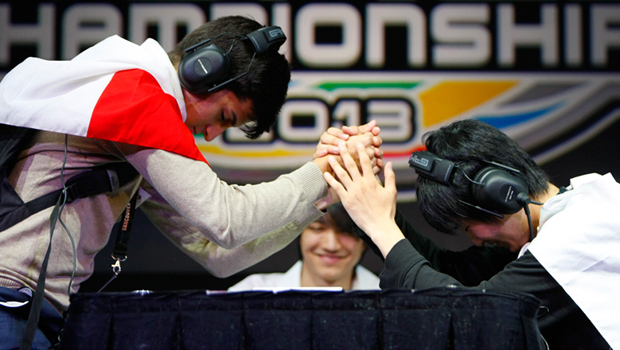
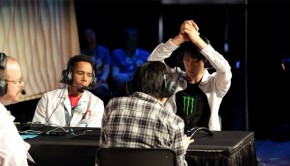
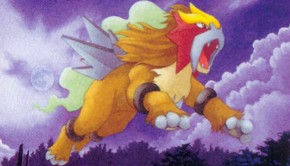
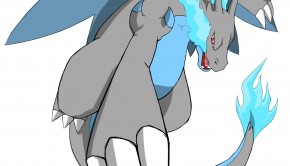
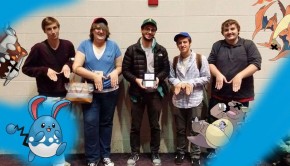
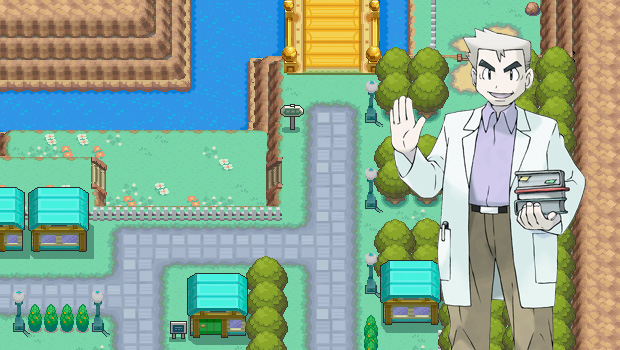




A very interesting read! Thanks for sharing this! As a TO that hasn’t staffed a States/Regionals level event, I’ve often wondered what that’d be like and how I might want to get involved.
I live fairly close to Boston and would love to be a volunteer at Worlds. Who would I need to contact and are they looking for people with specific skills (e.g. foreign languages?)
@Bucket, the thing about Worlds is that the staff usually comes from Nationals or Regionals and are selected by tPCI. If you’re looking to get started, the organizer who will be running the Massachusetts (tentative) regional in May would be a great person to get in contact – his name is Tom Shea, and inquiring about how you can help with the VGC event there would be a good start 🙂
How convenient that this article comes out right before I decide to help out a premier challenge after attending AJs meeting!
The whole idea of trying to be as ethical a player as I can be has just been greatly on my mind lately, and I hope for some if my experiences to be enlightening as a player to understand why organization/rulings are as they are sometimes. Thanks for the article!
Haha how did I know that my highlight in this report was going to be the fact that I almost missed round 1 of San Jose -_-
What an interesting read. It’s great to see on the other side of these events for a change.
Thanks for the article! And thanks for counting down so slowly for registration cutoff at San Jose XD
It was a blast working with you- hope to have the pleasure to do so in SoCal ’15 if you’re there!